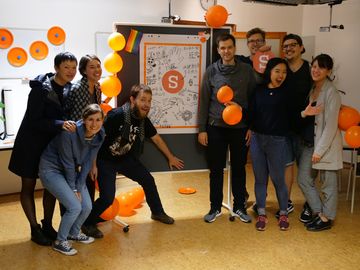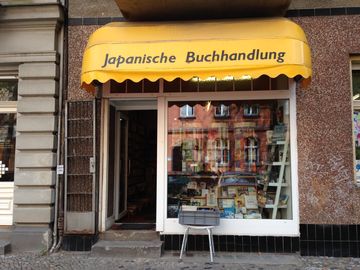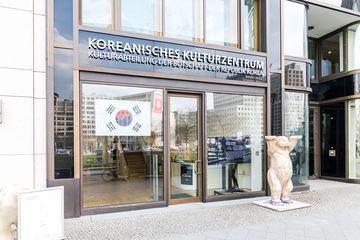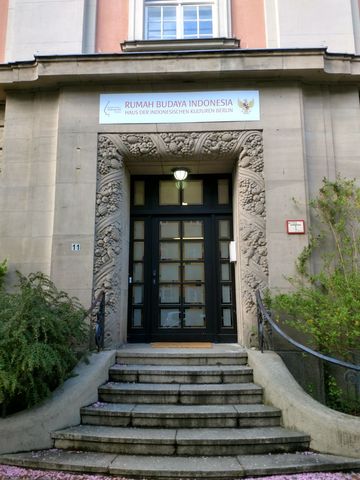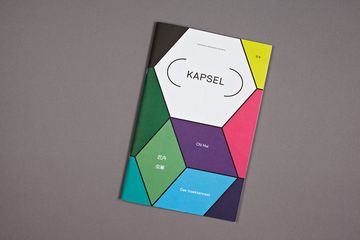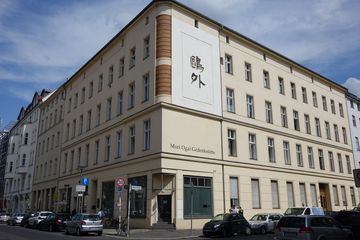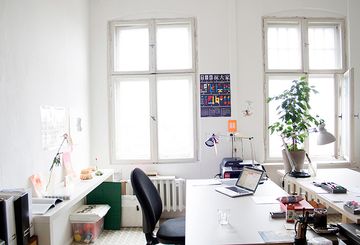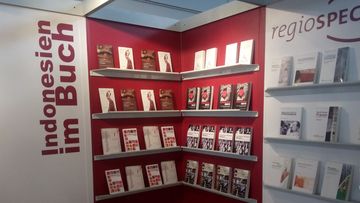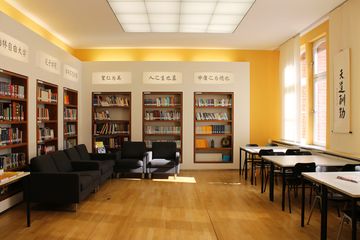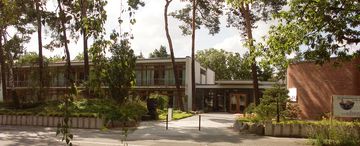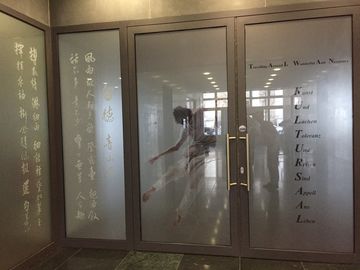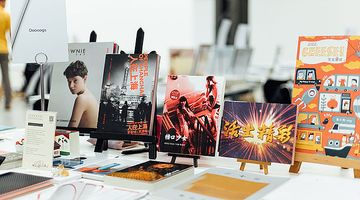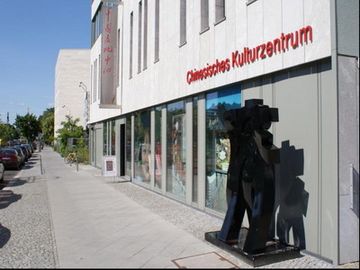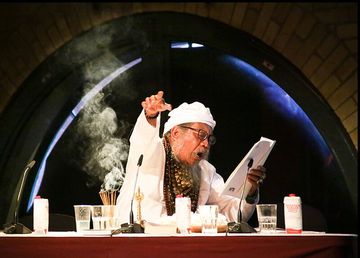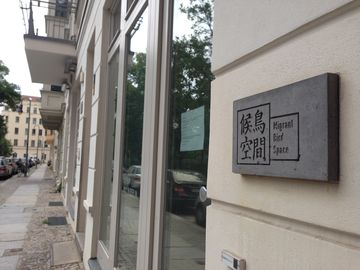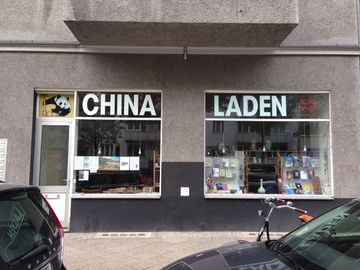Lea Schneider writes poetry, essays, and translations, but in most cases her texts are all three at once. She lives in Berlin, where she has been a member of the poetry collective G13 since 2009. With the collective she works on poetry-performances and collective writing projects.
Lea Schneider studied comparative literature, Sinology, and sociology in Berlin, Shanghai, Taipei, and Frankfurt an der Oder. Her debut collection, Invasion rückwärts was published in 2014 by Verlagshaus Berlin and was awarded the Dresden Poetry Prize, among other honors. The e-book O0 (in collaboration with Tillmann Severin and Sebastian Severin) followed in 2016, as did her translations of the Chinese poet Yan Jun (internationaler tag der reparatur, hochroth berlin) and the anthology CHINABOX. Neue Lyrik aus der Volksrepublik (Verlagshaus Berlin), which she worked on as both translator and editor. CHINABOX was featured as the 2017 poetry recommendation of the year by the Deutsche Akademie für Sprache und Dichtung. Lea Schneider has received grants from Künstlerhaus Edenhoben and the Deutscher Übersetzerfonds, among others, and she was also a writer-in-residence at the Goethe Institute Nanjing (China). She has worked with the poesiefestival Berlin, lyrikline.org and the Bundeskulturstiftung as a translator and curator of contemporary Chinese poetry.
Currently she is translating the poets Xi Chuan, Yu Xihua, Zheng Xiaoqiong, and Zang Di, writing essays on contemporary China, and working on her next poetry collection, which is set to appear from Verlagshaus Berlin in early 2020.
Lea Schneider
Foreword
The Berliner Tageblatt from June 6, 1928 reports that the ball of the Chinese Student Association in the Hotel Adlon was “one of the most important social events, right after the Film and Press Ball.” The elegant young gentlemen from China, “predominantly of the horn-rimmed glasses type, with fine, neatly combed-back hair,” were also often to seen strolling along Kantstraße in Charlottenburg, usually, as at the ball, accompanied by Europeans, “which testifies to their good taste.”
The inflation-struck Berlin of the 1920’s and 30’s was the destination of choice for artists, writers, intellectuals, and students from China, who wanted to spend their time outside the lecture hall “cheaply and entertainingly” and couldn’t afford the rents in Paris or London. Cai Yuanpei, the first minister for education in the Republic of China and later rector of Peking University, Zhou Enlai, later Minister President of the People’s Republic of China, Xu Beihong, Lin Fengmian, and Lin Wenzheng, several of the most important Chinese painters of the twentieth century, the poets Li Jinfa and Xu Zhimo, who helped found modern Chinese literature, the writer and activist Hu Lanqi, a good friend of Anna Seghers, who spoke at many anti-fascist demonstrations, including one in 1933 where she was arrested together with Fritz Zintzen, one of the printers of the Rote Fahne, and later wrote a book about her months in a German women’s prison, with a huge swastika looming on the cover—all were part of the Asian cultural scene in Berlin, along with hundreds of Japanese students, of whom the Wiener Neueste Nachrichten wrote on June 21, 1935, “They can be seen in every pub, cheerfully eating pork belly and carrots or Königsberger Klops and drinking their Molle Helles like real Spree-Athenians.”
The murders, imprisonments, and forced expulsions of National Socialism, the isolationism of the Cold War, the international marginality of divided Berlin, the repugnant policies of deportation in the 1990’s, which hit Vietnamese contract laborers from the GDR particularly hard, and the striking lack of translations of Asian literature into German, which continues to this day, all contributed to the fact that there is no longer a comparably visible Asian literature scene in Berlin. And yet: In nearly every quarter of Berlin there is some point of contact for literature in the languages of East and Southeast Asia, from the Vietnamese press Edition Vipen in Lichtenberg to the Korean Cultural Center on Potsdamer Platz, and from the Japanese bookstore Yamashina in Charlottenburg to Kapsel, a new magazine for Chinese science fiction produced and published in Mitte.
Many thanks to Fang Xiaoba, Martin Jankowski, Arseny Knaifel, Simone Kornappel, and Yimeng Wu for their help in compiling this tour.
1. Online-Magazin sinonerds
Sinonerds is a new online magazine for language, society, (pop-)culture, art, literature, and politics in the Chinese-speaking world. The creators live in Berlin, as well as in China, Taiwan, and Hongkong, and in the last few years they’ve built their magazine into one of the most exciting sites for those who want to know what’s really going on in today’s China and its sub-cultures. In addition to great long reads on all things Chinese, the magazine is an excellent source of information on current events related to China in Berlin: from Berlinale tips to reviews of exhibitions and books.
2. Japanische Buchhandlung Yamashina
The Japanese bookstore Yamashina is true gem: for nearly forty years this has been a place to buy Japanese literature in the original and in German translation, from modern classics like Kenzaburō Ōe to contemporary literature and nonfiction to manga and magazines. Any book that doesn’t fit into the brimming bookstore can be ordered from Japan within 3 weeks.
Koreanisches Kulturzentrum
Kulturabteilung der Botschaft der Republik Korea
Leipziger Platz 3
10117 Berlin
3. Korean Cultural Center
The Korean Cultural Center in Berlin offers not only language courses and an extensive library of Korean literature, but also the gallery damdam—an exhibition space for contemporary art—and a cinema- and event space. Every November the center hosts the JazzKorea festival, and there are regular readings and panels with Korean authors, as well as a monthly reading group where texts by Korean authors are read in German translation and discussed. In addition, the center publishes the magazine Kultur Korea which is well worth reading and has its own literary section.
4. Edition Vipen
Since 2010, Edition Vipen has been publishing books with a connection to Vietnam: in the original language and in translation, prose, poetry, drama, and nonfiction on contemporary and cultural history. The publishing house is primarily aimed at a Vietnamese audience, but is notably multilingual: books are published in Vietnamese, German, English, and French, and there are many interesting publications that draw attention to the complex history of the Vietnamese in Germany. In addition to its publishing activities, Edition Vipen regularly organizes a Vietnamese literature festival at the Literaturhaus in Fasansenstraße.
5. Rumah Budaya Indonesia
In addition to language- and other courses and events, the Indonesian cultural center Rumah Budaya Berlin, which is supported by the Indonesian embassy’s cultural wing, hosts frequent literary Sunday matinees, including “Temu Sastra,” a regular reading and discussion series with Indonesia authors, recently including the poet Taufiq Ismail.
6. Kapsel
Chinese science fiction is experiencing a huge boom, as evidenced by Hao Jingfang’s winning the 2016 Hugo award in the US for her novella Folding Beijing, and Liu Cixin’s Three Body trilogy becoming an international bestseller. The possibility of treating socially-critical themes in a literature clearly marked as “genre” is one major reason for science fiction’s popularity in China. Since 2017, Lukas Dobro, one of the organizers of the ACUD MACHT NEU artist collective, has been publishing the beautifully designed, bilingual Kapsel magazine for current Chinese science fiction. Each edition contains a newly translated short story accompanied by illustrations, interviews, essays, and reflections. The launch events at the ACUD art space in Mitte are opulent mini-festivals, which expand the magazine with multilingual readings, visuals, soundtracks and scholarly and artistic lectures into a thrilling party.
7. Mori Ôgai Memorial Site
Over 2000 Japanese people studied in Germany between 1868 and 1912, among them the hygienist and writer Mori Ôgai. Ôgai is today considered one of the founders of modern Japanese literature, and translated many German classics into Japanese. The memorial at the Humboldt University contains a small museum with a bilingual exhibition about Japanese-German literary connections, and a reference library with archival material. The memorial also organizes intermittent readings and panels with Japanese authors and their translators.
8. Studio Wu
Yimeng Wu’s intercultural design studio is the birthplace of wonderful German-Chinese projects and books—most recently the children’s book Yaotaos Zeichen, which tells the story of Chinese students in France in the 20’s and 30’s. In addition to her work as a designer and author, Yimeng Wu gives lectures and workshops and works on projects like the Chinese-German Urban Farming Incubator in Mitte.
9. regiospectra Verlag
Regiospectra Verlag publishes Southeast Asian literature and interdisciplinary nonfiction about the region, and organizes readings and translation workshops. The press has published multilingual scholarly publications, nonfiction on socio-cultural topics, poetry anthologies, translated novels, and influential essays by Southeast Asian thinkers.
10. Confucius Institute at the Freie Universität Berlin
The Chinese equivalent of the Goethe Institute focuses on a wide offering of language courses, but also hosts a library with nearly 4000 holdings and a varied program of events that includes films, readings, exhibitions, and workshops.
11. Japanese-German Center
The Japanese-German Center Berlin in Dahlem not only offers an extensive library with Japanese literature and nonfiction, but also organizes regular readings with Japanese authors as part of its culture program.
12. Taiwan Kultursaal
The cultural wing of the Taiwanese embassy established the Taiwan Kultursaal in 2018 to host regular concerts and readings. The programming is still rather thin, but it’s high time for the bustling and internationally well-connected Taiwanese literature scene to have a stronger presence in Berlin—and hopefully the Taiwan Kultursaal will make a serious contribution to this goal.
13. Doooogs
Doooogs is a German-Chinese online magazine sponsored by the sister cities of Berlin and Beijing. The focus is on design, art, and local tips, but the creators also organize regular art book events and fairs in Berlin and run a great online shop for artist books and magazines from China, which are otherwise difficult to come by in Germany.
14. China Cultural Center
The China Cultural Center Berlin, like the Confucius Institute, is sponsored by the Chinese Ministry of Education, and offers many language courses and a colorful range of events, including readings, exhibitions, workshops, and film screenings. The highlight of the center, however, is its library, which is open daily from 2 to 5 pm and contains a huge collection of classic and modern literature from China, e-books, and magazines which are hard to find elsewhere in Germany.
.
Stadtsprachen – Magazin der internationalen Berliner Literaturen
c/o Berliner Literarische Aktion
Kastanienallee 2
10435 Berlin
15. Stadtsprachen & Parataxe
The Stadtsprachen magazine and its accompanying reading series Parataxe is run by a team connected to Berliner Literarische Aktion. Since 2016, it has offered a wonderful forum for international literature in Berlin. In addition to many other languages, the magazine has published texts in Vietnamese, Indonesian, Japanese, and Chinese, along with German translations.
16. Migrant Birds Art Space
The gallery Migrant Birds Art Space in Mitte consistently shows exciting exhibitions of young, little-known Chinese artists, as well as organizing workshops, German-Chinese exchange programs, film screenings, and panels.
17. Chinaladen
The Chinaladen, which has been run for what feels like forever by the society for German-Chinese Friendship, is a bookstore and curiosity: time seems to have stood still here—it’s like before the economic opening of the People’s Republic of China, when Sinology was still an exotic subject and Chinese books were almost impossible to obtain in Europe. Many original titles and an impressive collection of antiquarian books contribute to the charm of this store.


